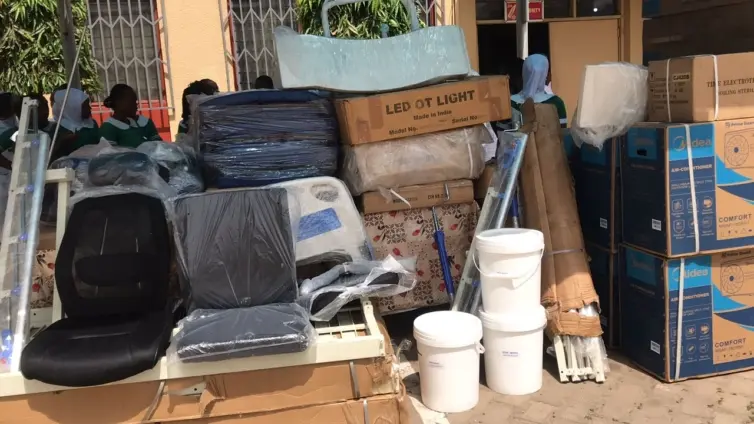The Food and Drugs Authority (FDA) in the Upper East Region has recently undertaken a significant operation, destroying GH¢522,475.69 worth of expired, unwholesome, and unregistered products. This action underscores the FDA’s unwavering commitment to safeguarding public health and ensuring product safety within the region. According to Abel Ndego, the Acting Regional Head of the FDA, this disposal represents the culmination of intensified market surveillance aimed at removing potentially harmful goods from circulation.
During a press briefing following the disposal exercise, Ndego emphasized the critical role of the FDA in regulating food, pharmaceuticals, cosmetics, and other consumer goods to protect the public from unsafe products. The destroyed items, seized during the first quarter of 2025, included a variety of products that failed to meet the required safety and quality standards.
The range of products destroyed by the FDA encompassed food items, pharmaceuticals, cosmetics, and various consumer goods. These items were confiscated during the FDA’s routine market surveillance operations. Abel Ndego explained that the FDA’s core mandate is to “safeguard public health by ensuring that only safe and high-quality products reach consumers.” The dangers posed by expired or contaminated products are significant. These products can lead to food poisoning, severe allergic reactions, and long-term health complications.
“The sale of unregistered regulated products is in contravention of the Public Health Act and considered a crime,” stated Ndego, highlighting the legal ramifications of dealing in unapproved goods. Unregistered products have not undergone the rigorous evaluation process required to ensure they meet both local and international safety standards. The potential harm exposure to such products poses a direct threat to public health, as their safety and efficacy cannot be guaranteed.
Consumers can take proactive steps to protect themselves from the dangers of unregistered and expired products. One of the most important measures is to avoid purchasing products that lack proper registration. All products registered by the Authority have designated registration numbers which patrons or consumers can use as verification for registration. Consumers can also check the Authority’s website to confirm a product’s status before making a purchase, ensuring they are buying safe and approved items.
The FDA acts as gatekeepers of public health through a multi-faceted approach that includes regular inspections, stringent regulatory frameworks, and proactive public engagement. These efforts are grounded in the Public Health Act of 2012, Act 851, which provides the legal basis for the FDA’s operations. Intensified inspections, collaboration with law enforcement agencies, and public awareness campaigns are all key components of the FDA’s strategy to prevent unsafe products from reaching the market.
To ensure compliance, business owners, manufacturers, and distributors must adhere to the FDA’s established protocols. These protocols cover critical areas such as product registration, accurate labeling, good manufacturing practices, maintaining proper hygiene standards, appropriate storage and distribution methods, and adherence to advertising regulations. The Acting Head appealed to stakeholders to follow the laid down regulations by the FDA.
Furthermore, the FDA encourages the public to report any suspicious activities related to unregistered or unsafe products through its designated whistleblower channels. By working together, the FDA and the community can create a safer environment for all. In conclusion, the FDA’s recent destruction of unsafe products in the Upper East Region underscores its unwavering commitment to safeguarding public health. As Abel Ndego aptly stated, “Let us work together to protect our health, our environment and our economy.” Consumers are urged to remain vigilant, always check for product registration numbers, and report any concerns to the FDA.
Image Source: MYJOYONLINE






















